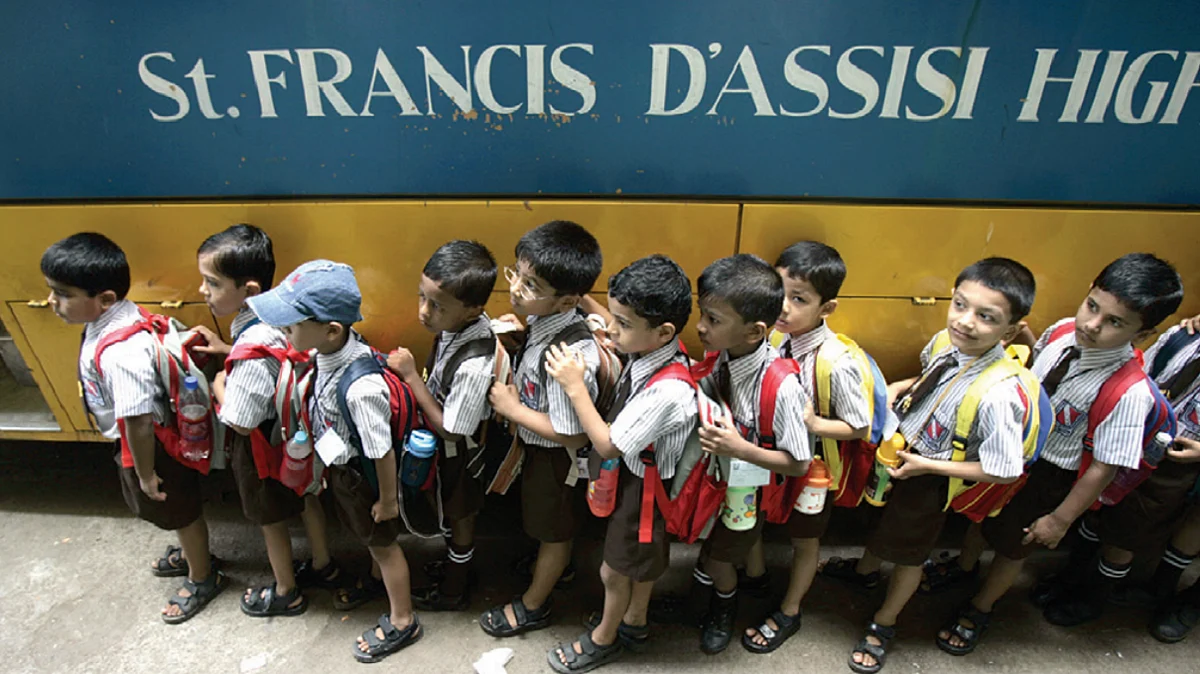In NCERT textbooks, references to Gujarat ‘riots’ and ‘caste discrimination’ dropped
Deletions and distortions introduced in NCERT textbooks, ostensibly due to the pandemic and the NEP, leave many questions unanswered

While Time will tell what the effect of the changes introduced by NCERT in its textbooks is, the intent can hardly be missed.
In the political science textbook prescribed for class 12 students, references to ‘Gujarat riots’ have been dropped while references to the ‘Emergency’ have been strengthened by mentioning human rights violations, arrest of political leaders, censorship on the media, forced vasectomy, deaths in custody and violence. Indeed, the earlier reference has been twisted completely out of shape.
The chapter on ‘Recent Developments in Indian Politics’, the passing reference to ‘Gujarat Riots’ has been dropped including the sentences, “Instances like in Gujarat alert us to dangers involved in using religious sentiments for political purposes. This poses a threat to democratic politics.”
Not surprisingly, Islam and Islamic history and heritage have been targeted. The text which challenged preconceived misconceptions about Muslims have been removed. Paragraphs on the spirit of Islam have been removed. One of the dropped paragraphs stated “like Christianity, Islam is a religion that emphasises equality before Allah”.
Introductory paragraphs in the Class 7 textbook on Mughal emperors Babur, Humayun, Akbar, Jehangir, Shahjahan and Aurangzeb have also been removed. In the Class 6 text ‘Social and Political Life Part 1’, the following paragraph has been deleted, which stated, “There is a general misconception that Muslims are not interested in educating their girls so they don’t send their daughters to school. Recent research however has shown that the compelling reason is poverty not orthodoxy. Due to poverty, they don’t send their girls to school or after few years are compelled to withdraw them.”
The ‘rationalised content in textbooks’ has led to the deletion of paragraphs which challenged biases against Muslims, which were about Mughal emperors, those pertaining to caste system and those decrying religious biases.
NCERT has said that the deletions were made after consultation with a group of experts, but has refused to disclose the names of the experts in the public domain or for that matter the reasoning.
There is no explanation either on why in the Class 12 history textbook an entire chapter on “Kings and Chronicles: the Mughal Courts” has been dropped.
In the chapter on ‘Samrat Ashoka’ in a textbook for class 6, there was a reference to former PM Jawaharlal Nehru. It stated, “His teachings talk in the language which we can still understand.” Even this innocuous sentence has now been removed.
References to important social movements and landmarks such as Chipko movement, agitations by Bharatiya Kisan Union, Narmada Bachao Andolan and Right to Information too have been removed.
In the Class 6 textbook in a chapter called ‘Diversity and Discrimination’ the paragraph on caste discrimination has been removed. The dropped passage had stated that “caste system prohibits untouchables to do any other work other than what has been prescribed in the rule book”.
For some unexplained and unclear reason, the chapters on ‘Central Islamic lands’ and ‘The Industrial Revolution’ in the Class 11 history textbook have also been discarded.
While engaging in this deletion and distortions, no permission was sought from authors. Curiously, the reasons cited by the NCERT for making changes are the “coronavirus pandemic, the National Education Policy 2020, overlapping with similar texts and irrelevant content and difficulty level”.
Will the omissions and commissions of the NCERT leave lasting damage on the social fabric? As we recently watched two nine-year olds, Karam and Mohammed, boarding the school bus together holding each other’s hands, we wondered if they would grow and remain friends. Would they know of each other’s culture and will the differences really matter?
The NCERT is clearly following an agenda dictated by the current political dispensation. But how will it affect the young, impressionable minds of the likes of Karam and Mohammed?
(Syeda Hameed is President Muslim Womens Forum (MWF); Reyaz Ahmed is Fellow, MWF)
(This was first published in National Herald on Sunday)
Follow us on: Facebook, Twitter, Google News, Instagram
Join our official telegram channel (@nationalherald) and stay updated with the latest headlines
